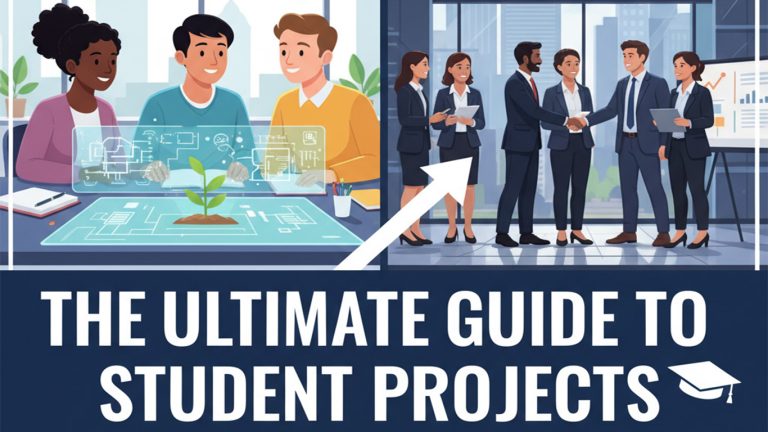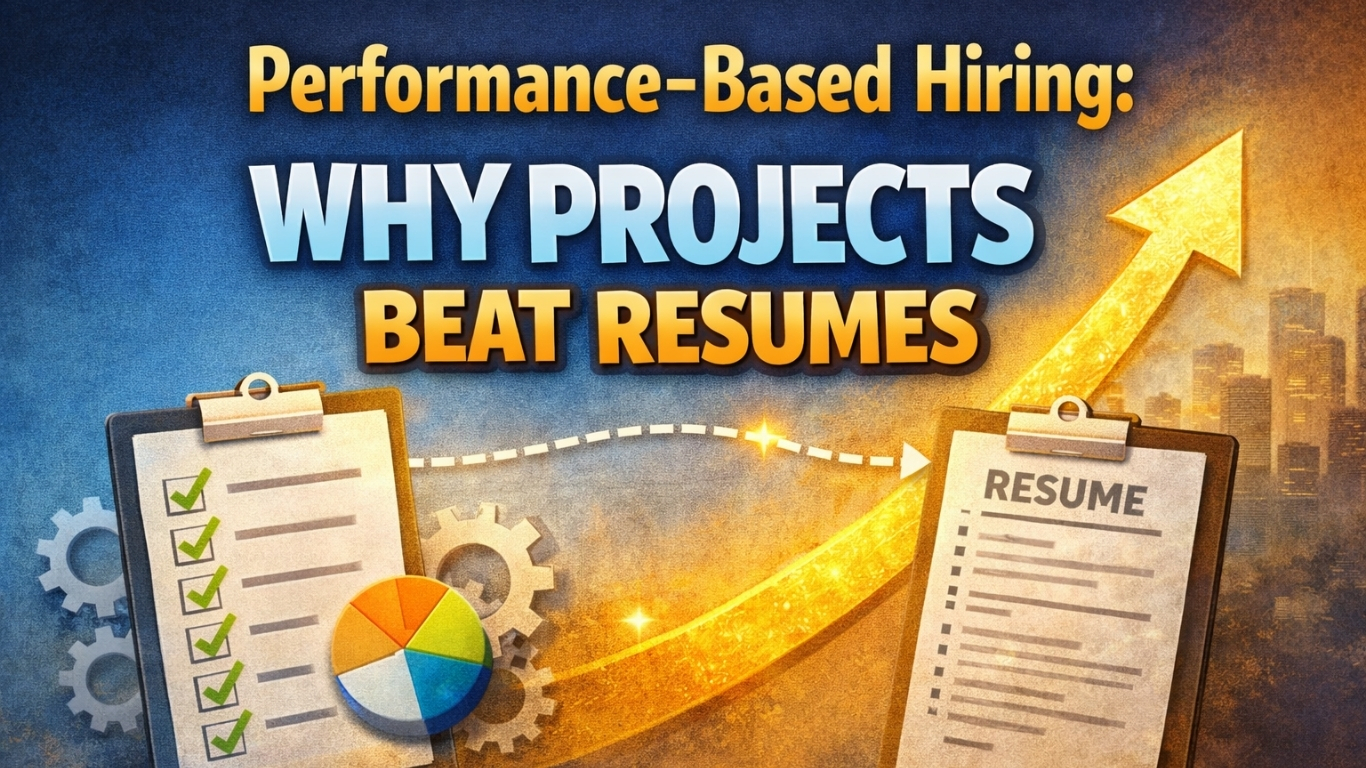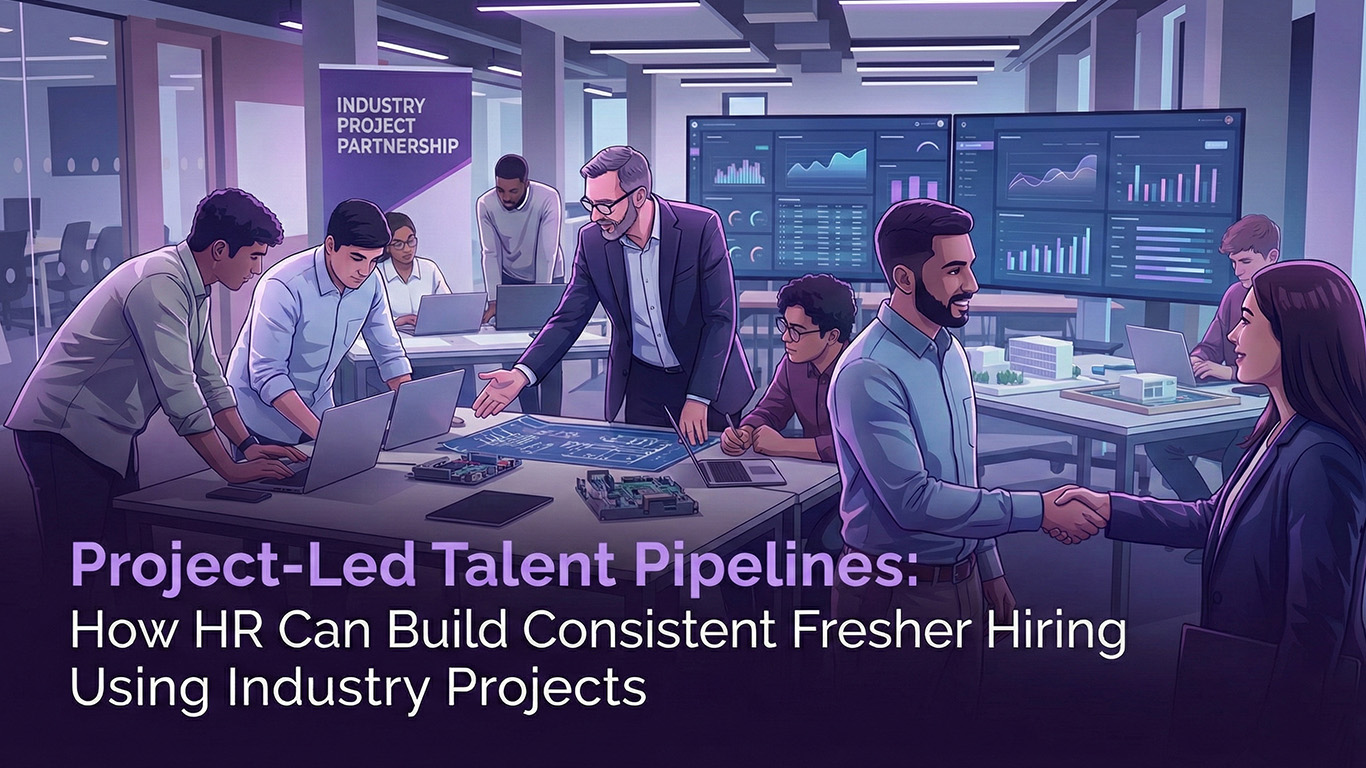Introduction: Student Projects
In today’s competitive job market, just having good grades isn’t enough. What sets outstanding candidates apart is the ability to solve real problems and demonstrate that through projects. At Qollabb, we connect students with real-world projects, internships, and industry collaborations so you don’t just learn – you do.
In this guide, we cover why student projects matter, different types of projects, and how you can turn them into career boosters. Whether you’re a student or a university educator, you’ll find actionable ideas to bridge classroom theory to real-world success.
1. Why Student Projects Matter
-
- Bridge theory with practice – Projects allow you to apply class learning in concrete, often messy, real contexts.
-
- Stand out to employers – Companies care about what you did, not just what you learned.
-
- Portfolio & proof of work – You can show projects on GitHub, LinkedIn, or websites as evidence of skills.
-
- Build problem-solving & collaboration – Many projects require cross-disciplinary thinking, deadlines, team work, and iteration.
-
- Get feedback & mentorship – Real projects often involve external reviewers, industry mentors, or client feedback, which helps refine your work.
2. Types of Student Projects
Here’s how projects typically fall into three major categories:
Type Description Benefits for Career Academic Projects Projects tied to coursework, thesis, or class assignments Show domain depth, fulfill degree requirements Industry Projects Projects done in collaboration with companies, startups, or external clients Exposure to real workflows, domain tools, expectations Live / Real-World / Open Projects Projects that address real problems (e.g. NGOs, local businesses, hackathons) Best for portfolios, high visibility, real impact
At Qollabb, many of the opportunities you see are industry or live projects – you get to work with real clients, solve challenges, and produce work people actually use.
3. How Projects Help Grow Your Career
Here’s how good projects translate into career value:
-
- Stronger resumes & portfolios – Rather than listing course names, you show deliverables, metrics, impact.
-
- Interview material – You can talk in-depth about challenges, decisions, tradeoffs, and lessons.
-
- Recruiter attention – HR and hiring managers love seeing project portfolios that show initiative.
-
- Networking & references – If you collaborate with industry partners, mentors, or professors, you can get referrals or letters.
-
- Skills beyond textbooks – You develop soft skills: communication, iteration, ambiguity management, teamwork.
4. How Students Can Do Projects Smartly
Here’s a step-by-step approach:
-
- Pick the right domain + problem – Align to your interest or where you want a career (e.g. AI, sustainability, marketing).
-
- Scope reasonably – Don’t try to build a full system if you’re one person in 2 months. Pick modules or features.
-
- Document thoroughly – Use GitHub, write READMEs, maintain a project blog or diary.
-
- Get feedback – Seek reviews from peers, professors, or mentors.
-
- Iterate & improve – Use feedback to refine; a polished smaller project is better than a messy big one.
-
- Showcase thoughtfully – On LinkedIn, in a portfolio site, and in your resume. Focus on impact, problem, your role.
- Use it strategically – Refer to project work in job applications, proposals, and interviews.
5. For Colleges & Universities: Enabling Project-Driven Learning
To help your students, institutions can:
-
- Partner with industry – Provide real problem statements, sponsor non-class projects.
-
- Offer cross-disciplinary initiatives (e.g. engineering + business + design).
-
- Support infrastructure – labs, mentorship, project showcases, repositories.
-
- Incentivize innovation – awards, funding, publication aid.
-
- Track outcomes – Placement rate, student feedback, industry adoption.
Conclusion
Projects aren’t just assignments – they’re your career bridge. When done right, they signal capability, creativity, and grit. At Qollabb, we help students find, do, and showcase industry-relevant projects to accelerate their professional journey.





